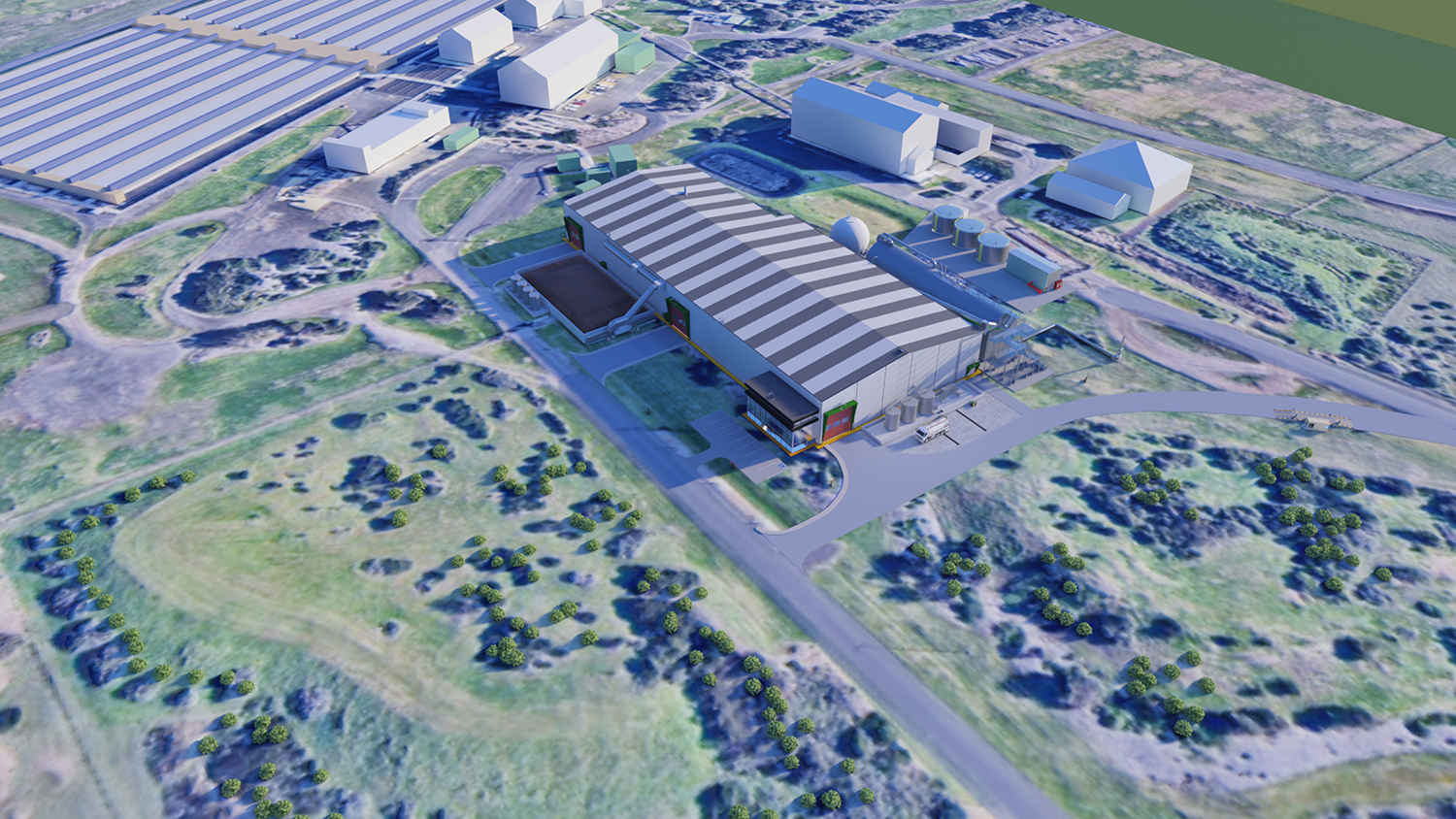Renewable Organics Networks
Barwon Water is partnering with industry and local councils on two Renewable Organics Networks (RONs).
These projects will leverage existing water and sewerage infrastructure to reduce the amount of organic waste that goes to landfill, create valuable resources for use in agriculture and advanced sustainable materials and at the same time produce renewable energy. The RONs will deliver significant environmental, economic and community benefits to their regions.
Regional Renewable Organics Network at Black Rock
Barwon Water is planning a world leading RRON facility at the Black Rock Water Reclamation Plant in Connewarre.

Image courtesy of Hitachi Zosen Inova and NALG
Barwon Water has drawn on its 110-year knowledge of managing water and wastewater to partner with four regional local councils to transform organic waste into valuable resources.
The planned facility will take household food and garden waste, local commercial and industrial organic waste and biosolids (organic materials from wastewater treatment) and safely convert it into products that enrich compost, soil and capture carbon for high value use in agribusiness and sustainable manufacturing, and at the same time produce renewable energy. In doing so, volumes of organic waste will be diverted away from landfill, reducing emissions and providing better environmental outcomes to the Barwon region.
See also: Not wasting a minute - Barwon Water takes next step with the Regional Renewable Organics Network.
Learn more at our dedicated microsite
We’ve set up dedicated microsite for the Regional Renewable Organics Network.
The site includes the most up to date information including plans, frequently asked questions, a news archive, engagement reports and more.
Your Say: Regional Renewable Organics Network
Colac Renewable Organics Network
The Colac Renewable Organics Network (Colac RON) is helping our water reclamation plant in Colac run on clean, green and low-cost energy.
We are working with the Colac-based Australian Lamb Company to take its organic trade waste and convert it into renewable electricity.
The next step is to accept waste from Bulla Dairy Foods to produce a total of 5.5 gigawatt hours of energy per year – enough to completely power the Colac plant.
How does it work?
The solid and liquid waste is added to a large covered pond where natural bacteria breaks down the waste and transforms it into biogas that is captured and converted into renewable energy.
Solid waste leftovers from the process are converted into valuable soil enhancers that improve soil conditions for agricultural purposes.
Benefits
- reduces greenhouse gas emissions by 6,300 tonnes per year
- produces 5.5 gigawatt hours of clean, green, low-cost energy each year
- reduces the high energy cost of treating sewage and wastewater, helping to keep Barwon Water customers’ bills affordable
- creates 17 construction jobs and 45 ongoing jobs
- limits landfill and reduces our carbon footprint.
By 2023, in an Australian first, the network will produce hot water to help reduce the Australian Lamb Company’s natural gas consumption which is currently the same as 350 Colac households, 21.4 terajoules annually.
These environmental benefits and lower energy costs help us keep our customers’ bills affordable and will help us deliver our commitment to achieve 100% renewable electricity by 2025 and zero net emissions by 2030.